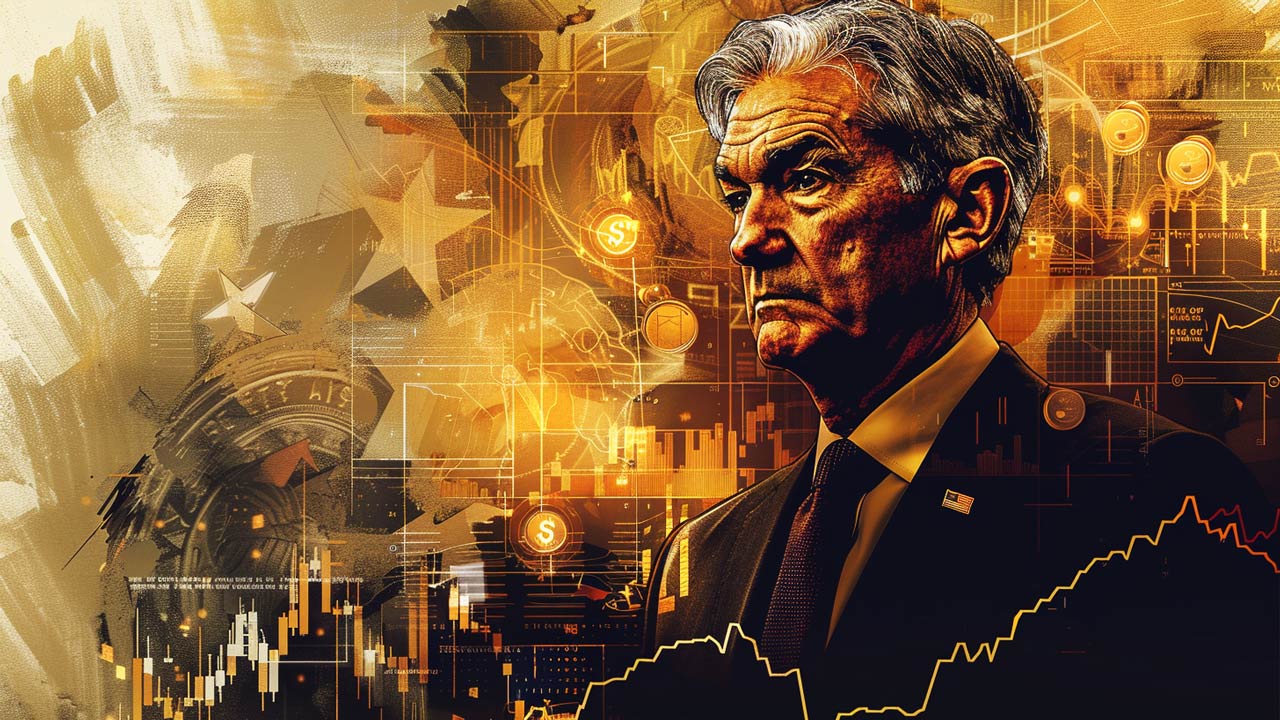Peter Schiff: Look Out for the Mother of All Busts
The US economy is now technically in the second-longest recovery in history. If it continues another 14 months, it will eclipse the longest recovery, which took place in the 1990s.
As Peter Schiff pointed out in his latest podcast, the Federal Reserve pulled out all the stops in the 1990s to keep the recovery going. That set the stage for the dot-com crash and ultimately the Great Recession.
Now the Fed is doing it again.
After the dot-com bubble burst, the US went through a relatively shallow recession in 2001 and 2002. The Fed managed to kick the can down the road by lowering rates to 1%. Of course, this inflated the housing bubble. In fact, as Peter points out, the housing bubble was already going.
The housing bubble didn’t start when the dot-com bubble popped. Both bubbles were being inflated simultaneously. It’s just that when the stock bubble popped, all the air went into the housing bubble, and the Fed was able to buy that recovery, or that phony recovery that didn’t blow up until 2008.”
After the housing bubble burst, the Fed went back into stimulus mode. But the amount of stimulus the central bank threw at the economy this time around dwarfs the amount of easy money Greenspan poured into the economy during the 1990s.
Peter pointed out there were some other positives in the 90s that we don’t see today. For one thing, budget deficits were relatively small. In fact, the federal government technically ran a surplus a couple of years. Of course, today we are drowning in debt.
So, in a relatively low debt environment compared to today, the Fed has managed to manufacture a long “recovery.” But as Peter said you should put the term recovery in quotes.
It’s not really a recovery. It’s just a bubble masquerading as a recovery. But they’ve been able to engineer the second-longest recovery in history, but it’s required the most amount of stimulus in history – the biggest amount of deficit spending, the most amount of money printing. And of course, busts are normally proportionate to the booms that precede them.”
The only reason that didn’t happen in 2001 was because the Fed took extraordinary measures to prop things up a little longer. We got that recession in 2008.
Based on the amount of stimulus that we’ve had in this boom, this is going to be the mother of all busts. That’s why I say we’re going to die of a monetary overdose. So, that’s going to happen when they try to stimulate the economy back from this massive recession, which is going to be impossible.”
Peter also said he’s skeptical of the notion that this has really been a great recovery. He doesn’t believe the economy is actually bigger than it was before the bust.
I don’t believe any of these GDP numbers. I think that the inflation rate is being understated. And I think the economy, in fact, has contracted.”
Peter cited an interesting index to back up his point – the Big Mac index. An analyst took the GDP at the beginning of the recovery and divided it by the price of a Big Mac and then did the same with the current GDP.
According to that index, the US economy is smaller today than it was back then because it’s worth fewer Big Macs. So, if you just figure out how many hamburgers the US GDP can buy today versus what it bought when the recovery began, we buy fewer. And what that means, obviously, is the price of a Big Mac has gone up a lot faster than the US GDP. And I think that Big Mac gives you a pretty good estimate of the overall rate of inflation.”
When you think about it, the cost of a hamburger is a pretty good economic indicator. It not only incorporates the cost of the ingredients. It also factors in rent, utilities, wages, transportation costs and other expenses. That means the inflation adjuster used to calculate GDP isn’t nearly high enough. In other words, the official numbers are likely overstating GDP.
The Big Mac doesn’t lie. The price is the price. You can see, the hamburger ain’t changing. So, what’s changing is the cost of creating it and that’s because the value of our money is going down. That’s because we have inflation.”
Get Peter Schiff’s most important Gold headlines once per week – click here – for a free subscription to his exclusive weekly email updates.
Interested in learning how to buy gold and buy silver?
Call 1-888-GOLD-160 and speak with a Precious Metals Specialist today!





 Since Nayib Bukele became president of El Salvador, El Salvador has been in American media and global political discussion more than ever. While much of the attention focuses on Bukele’s mass incarceration of gang members and a decline in homicide of over 70%, Bukele has also drawn attention to his favoritism towards Bitcoin and how he […]
Since Nayib Bukele became president of El Salvador, El Salvador has been in American media and global political discussion more than ever. While much of the attention focuses on Bukele’s mass incarceration of gang members and a decline in homicide of over 70%, Bukele has also drawn attention to his favoritism towards Bitcoin and how he […] With gold hitting yet another awe-inspiring all-time high in the wake of Powell’s remarks reassuring markets (more or less) to expect rate cuts in 2024, a few analysts are pointing out risk factors for a correction — so is there really still room to run?
With gold hitting yet another awe-inspiring all-time high in the wake of Powell’s remarks reassuring markets (more or less) to expect rate cuts in 2024, a few analysts are pointing out risk factors for a correction — so is there really still room to run? Gold hit a new all-time nominal high, surpassing the previous record set in December of the previous year. The precious metal’s price reached approximately $2,140, indicating a robust and continuing interest in gold as a safe-haven asset, despite a rather peculiar lack of fanfare from the media and retail investors. This latest peak in gold […]
Gold hit a new all-time nominal high, surpassing the previous record set in December of the previous year. The precious metal’s price reached approximately $2,140, indicating a robust and continuing interest in gold as a safe-haven asset, despite a rather peculiar lack of fanfare from the media and retail investors. This latest peak in gold […] The gold price has been surging, with unprecedented central bank demand gobbling up supply. It has been a force to behold — especially as US monetary policy has been relatively tight since 2022, and 10-year Treasury yields have rocketed up, which generally puts firm downward pressure on gold against USD.
The gold price has been surging, with unprecedented central bank demand gobbling up supply. It has been a force to behold — especially as US monetary policy has been relatively tight since 2022, and 10-year Treasury yields have rocketed up, which generally puts firm downward pressure on gold against USD.  Total gold demand hit an all-time high in 2023, according to a recent report released by the World Gold Council. Last week, the World Gold Council (WGC) released its Gold Demand Trends report, which tracks developments in the demand for and use of gold around the world. Excluding over-the-counter (OTC) trade, 2023 gold demand fell slightly from 2022 […]
Total gold demand hit an all-time high in 2023, according to a recent report released by the World Gold Council. Last week, the World Gold Council (WGC) released its Gold Demand Trends report, which tracks developments in the demand for and use of gold around the world. Excluding over-the-counter (OTC) trade, 2023 gold demand fell slightly from 2022 […]